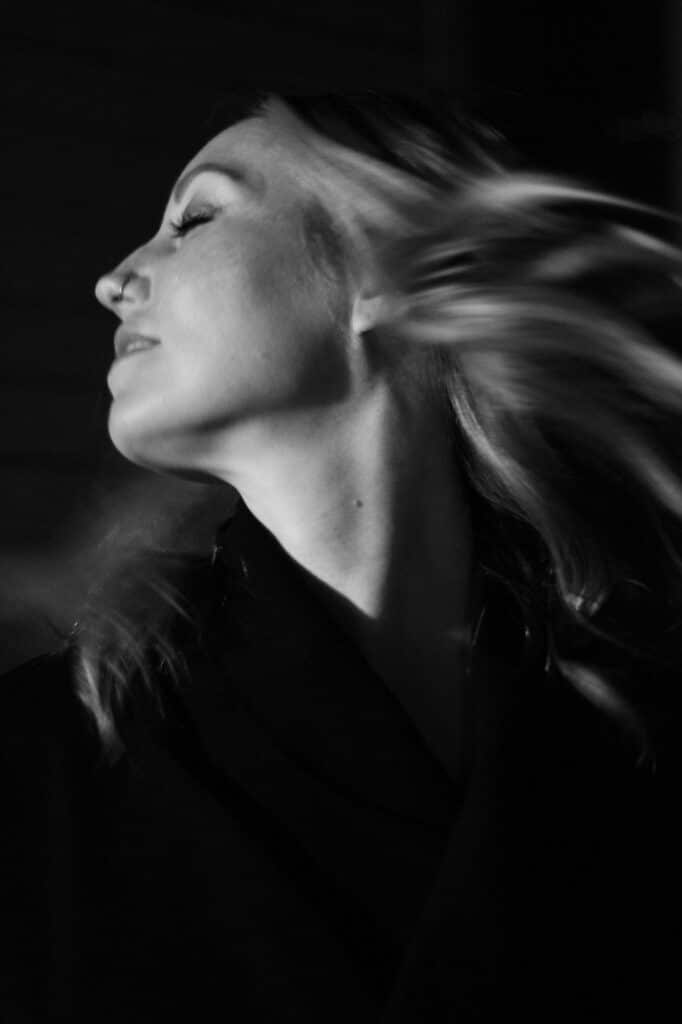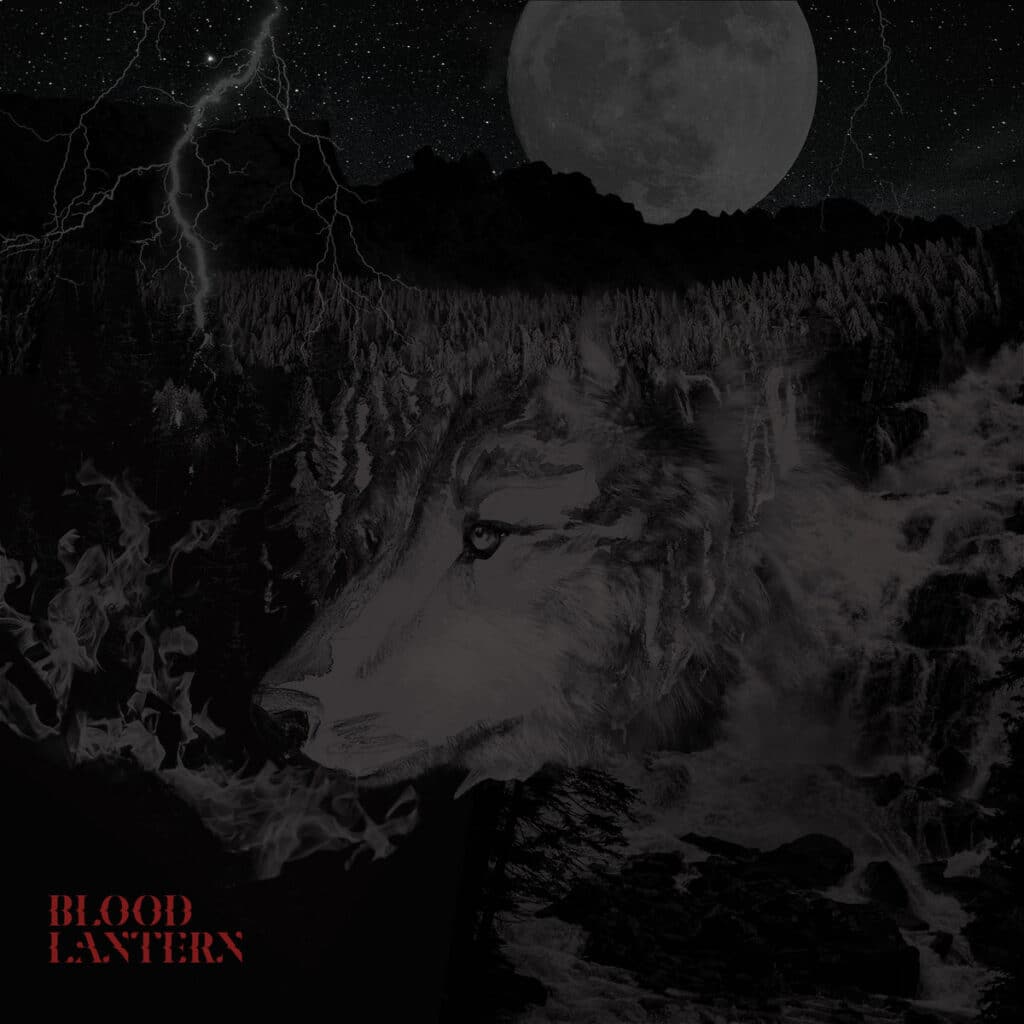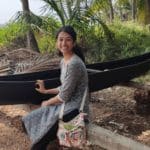Music has often been used as a tool to connect people with larger social movements, ideologies, and emotions, transcending the barriers of language and words. Traditional rural communities around the world have taken this a step further by using music to pass down tales of nature and culture that keep their traditions alive. Unlike the written word, music has the ability to stir the soul and stimulate an emotional connection to the message being communicated.
In Season 2 Episode 5 of the Good Natured Podcast, we meet Jen GaNun, who puts a rock and roll twist on this concept of music. A choreographer, dancer, musician, and wildlife enthusiast, Jen has dedicated her efforts to wolf conservation. Her band, Lost Walks, works to raise awareness, empathy, and actions towards protecting wolves and returning them to their native habitat in Colorado.

Growing up in New Jersey, Jen was always fascinated by animals, both wild and domesticated. She fondly recounts a childhood assignment where she proclaimed she wanted to become a dancer, a farmer, and a musician when she grew up. Animals always occupied a large part of her heart and fueled her towards her current project on wolves.
Jen explains, “We decided that we wanted to start an artistic project that was creating music and movement together. And I was fascinated with animals and the way that their kind of rooted movements move on the ground.” She was never passionate about wolves until the project really took off and they visited a wolf sanctuary in Colorado. The first piece of the project, according to Jen, was creating songs with lyrics that educated the public on wolves.
But why use music as a method of conveying such messages? Jen reminisces about her love for this art form. “I think music is a great access point to feelings and to emotion and empathy,” she says. “I was already a musician. My partner is a musician. It felt natural to use that medium, but it also can really translate to an audience, and then of course it’s easy to create more layers alongside it with movement and artwork and that narrative.”
It’s not just music that’s emotional; conservation is a field that uniquely blends facts with emotion. For many people, conservation is the amalgam of emotions, feelings, and ideologies that fuel them to support biodiversity conservation movements. When Jen heard about the war on wolves in Colorado, she turned to music as an outlet. “It really affects me, hooks me, and in a way, this is a way for me to process what I’m learning about.” Music, for Jen, provides a catharsis. “When somebody experiences our songs, our videos, or a live performance, I do hope that they come away with a feeling,” she tells the hosts of Good Natured. “Then maybe that develops into looking into that a little bit more, not just as a personal way of processing it, but maybe to learn more about what are these songs about – what is the story? Are they rooted in fact?” She hopes that her songs will act as an access point for people to start learning more about wolves and their plight.

The conversation turns to her latest album – Blood Lantern. According to Jen, the name is taken from how wolf pack structure and family dynamics have helped their survival, with knowledge transfer across generations, such as hunting skills. This helps to maintain a unique culture for each wolf pack, something that Jen finds strongly similar to the passing to cultural traditions, values, and beliefs between generations in human families. “I think we can imagine sometimes that humans are the only ones that have this with our families.” She goes on to point out that just because animals speak a different language from us does not prevent them from having their own culture.
Just like wolves, Jen doesn’t work alone. Her team consists of a dance troupe, six musicians, members of the local community, and wildlife organisations working towards wolf conservation. A trained dancer, Jen connects to the various aspects of the project and can contribute across all dimensions, something she finds highly rewarding and motivating as an artist. She takes a moment to speak about Kate Vannelli, a National Geographic Explorer who brings art into the field of conservation education, one of the conservationists that Jen finds inspiring.
Wolves and their complex social behaviour weave in and out of every aspect of this project. The first song in the Blood Lantern record is called Dawning Mountain and follows the wolves as they wake up and follow their alpha into a new space. This, in turn, sets up the titular track Blood Lantern, which talks about how wolves support a healthy environment. It brings up complicated biological concepts such as trophic cascades (including effects on the food web if carnivores are removed from the ecosystem) and how wolves can access remote places where humans cannot go. It is humbling and awe-inspiring. For Jen, learning about the multifaceted howl of the wolf was one of the most powerful moments in the process. “It could be a warning, it could be a way to bond with your family members, to communicate a call of solidarity, a reunion, a joyful expression,” she says reverently.
The podcast episode concludes with Jen speaking about the future. “I feel a balance,” she says. “I [feel] hope and despair about the future of nature…I think then, in the end, empathy and coexistence is really what gives me the most amount of hope. I would like to, when I can, be choosing the side of hope rather than despair on what the future is.”
*********************
“Blood Lantern”
Blood Lantern
Sickness and death in herds
My pack will flush them out
Nothing but skin and bones
To feed our empty mouths
We’re passing to the urn
My kin will push them out
Nothing but wasted fur
To quench our barren mouths
They’re on the top, below you now
Even though you are wrought
With smoke and stone left them alone
To waste away for not
We have the paws, the claws, the grip
To reach where you can not
They cannot hide or graze the side
Of hazy mountain tops
We have the paws, the claws, the grip
To reach where you cannot
Trophic in cascade with the wolf
In ever rising crop


